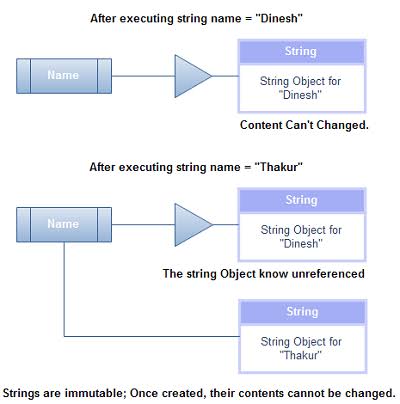Why Are Strings Immutable in Java? Necessary Understanding for Developers
Why Are Strings Immutable in Java? Necessary Understanding for Developers
Blog Article
Unalterable Strings: A Secret Part in Ensuring Data Uniformity and Dependability
In the realm of information administration, the relevance of unalterable strings can not be overemphasized. These unvarying series of personalities play a pivotal function in maintaining the stability and accuracy of details within systems. By keeping a state of immutability, data uniformity is guaranteed, promoting a foundation of integrity upon which important processes count. The idea of immutable strings goes beyond mere technicality; it is a linchpin in the complicated internet of data governance. As we check out the benefits, application approaches, and useful applications of unalterable strings, a more clear photo arises of their important nature in protecting the electronic landscape.
The Idea of Unalterable Strings
Immutable strings, an essential concept in shows, refer to strings that can not be modified once they are created. Basically, as soon as a string value is assigned, any kind of operation that appears to customize the string actually creates a new string. This immutability guarantees data consistency and integrity in applications, as it protects against unexpected adjustments to the original data.
Advantages in Data Uniformity

Data uniformity is essential in numerous aspects of software application growth, consisting of database monitoring, multi-threaded settings, and distributed systems (Why are strings immutable in Java?). Unalterable strings contribute substantially to accomplishing this consistency by avoiding information corruption due to simultaneous accessibility. In circumstances where numerous procedures or threads connect with the same information concurrently, immutable strings serve as a protect against race problems and synchronization concerns
In addition, the immutability of strings streamlines debugging and screening processes. With immutable strings, designers can rely on that when a string is set, it will remain the same, making it simpler to trace the resource of errors and making sure that examination cases generate regular outcomes. This reliability in data handling eventually causes much more durable and secure applications.

Applying Immutable Strings
Guaranteeing the immutability of strings needs a thoughtful method to their application in software application development. One essential method is to make string courses in such a way that prevents alterations as soon as a string item is developed. By making strings unalterable, designers can boost information uniformity and dependability in their applications.
To apply immutable strings properly, programmers must prefer creating new string things instead of customizing existing ones. This method guarantees that once a string is designated a worth, it can not be transformed. In addition, any type of procedure that appears to modify the string should create a brand-new string with the wanted adjustments rather than modifying the original.
Furthermore, making use of immutable strings can streamline concurrency monitoring in multi-threaded settings. Given that unalterable strings can not be transformed after creation, they can be securely shared amongst several strings without the danger of data corruption.
Role in Reliability Guarantee
In software growth, the use of immutable strings plays a crucial function in ensuring the reliability of information operations. Unalterable strings, when produced, can not be changed, making certain that the data they represent stays constant throughout the application's implementation. This immutability residential or commercial property gives a level of assurance that the find this information being processed will not be accidentally transformed, resulting in unexpected results or mistakes in the system.
By incorporating unalterable strings right into software application layout, programmers can enhance the dependability of their applications by lessening the dangers related to mutable information - Why are strings immutable in Java?. Immutable strings help in protecting against data corruption or unintentional adjustments, which can be especially critical when handling sensitive details or when information honesty is paramount
Additionally, making use of immutable strings streamlines concurrent handling, as multiple threads can securely access and share string data without the danger of one thread modifying the material while one more is reviewing it. This facet contributes substantially to the total integrity of the software program system, guaranteeing consistent and predictable actions in information handling operations.
Applications and System Integration
The seamless combination of immutable strings right into numerous applications and systems is crucial for guaranteeing robust information uniformity and reliability throughout diverse technical settings - Why are strings immutable in Java?. Immutable strings play a critical function in boosting the integrity of data exchanges and interactions within complex software program ecosystems. By including unalterable strings into applications, designers can alleviate the risks connected with data tampering, unauthorized adjustments, and unintentional changes, thereby strengthening the general safety and security position of the system
Unalterable strings can enhance interoperability between disparate systems by giving a standard layout for information representation, allowing much more reliable information processing and exchange protocols across interconnected platforms. By taking on immutable strings in applications and system assimilation procedures, companies can fortify their information framework and maintain the reliability and consistency of their info possessions.
Final Thought
To conclude, immutable strings play an important function in keeping data uniformity and dependability in different applications and system integrations. By making sure that strings can not be changed when created, the stability of data is website here protected, minimizing the danger of incongruities and errors. Carrying out unalterable strings can dramatically improve the dependability of systems, inevitably resulting in even more reputable and precise information handling.

Report this page